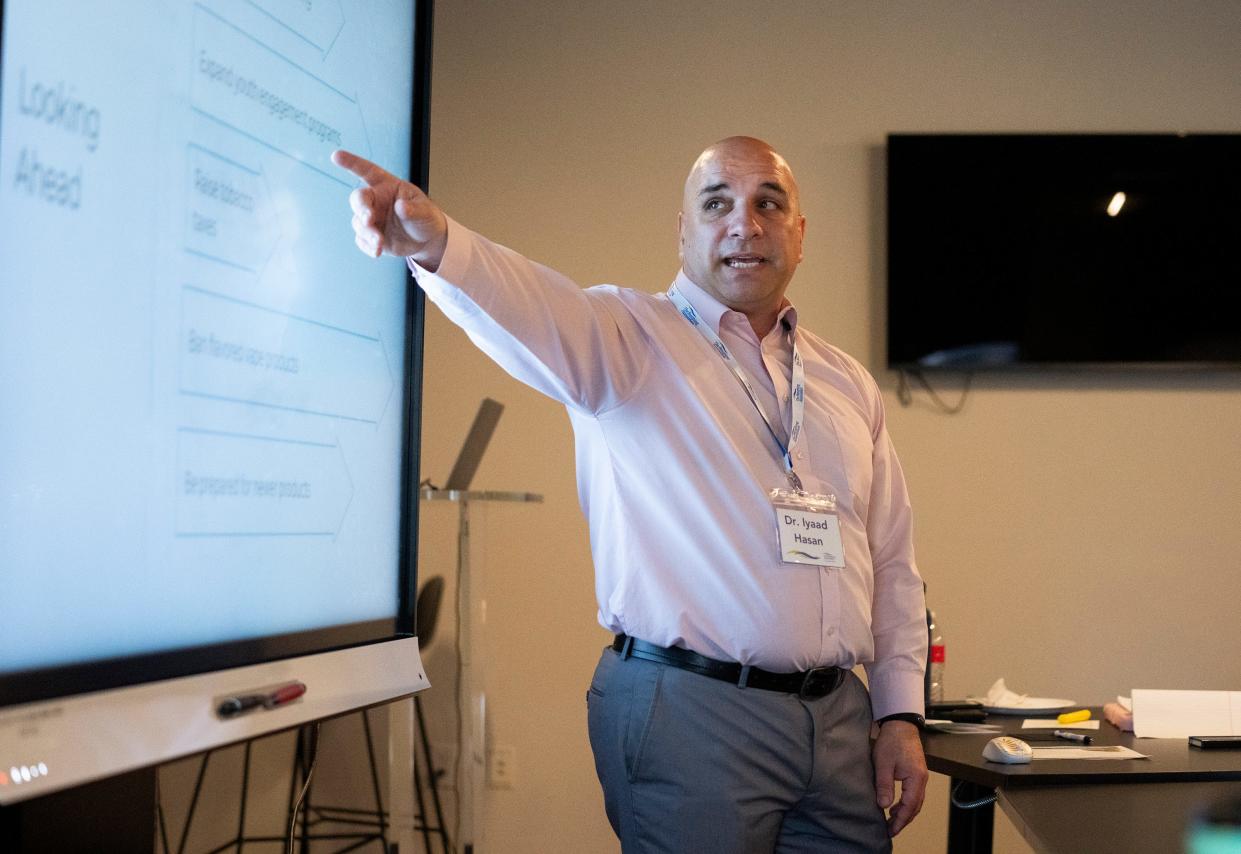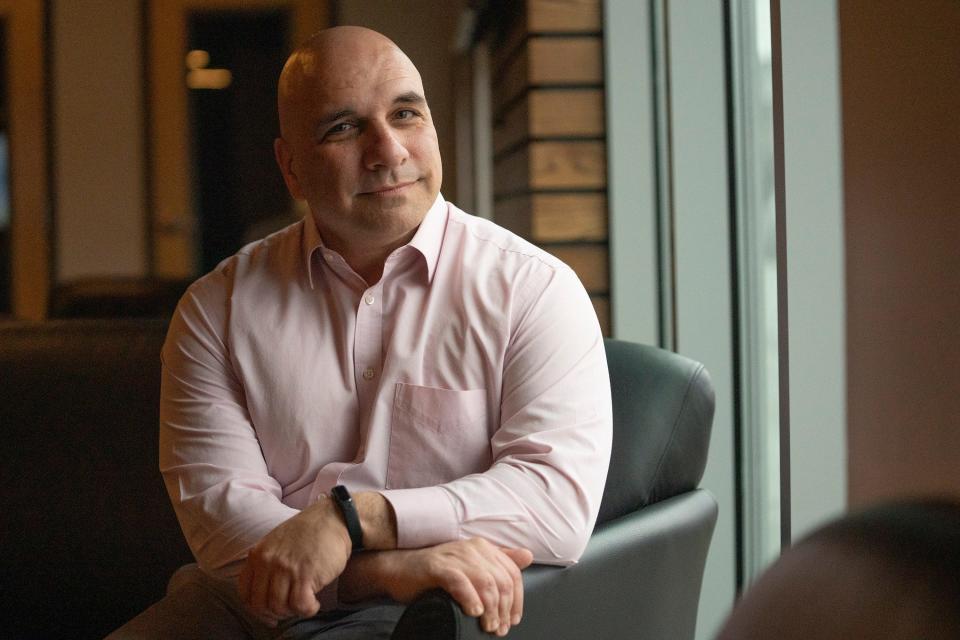Experts warn about increase in young adults vaping thinking it is healthier than smoking

Contrary to what many young adults believe, vaping is not "healthier" or "better for you" than lighting up a cigarette, experts warn.
"Vaping is smoking and smoking is vaping," said Dr. Iyaad Hasan, chief operating officer of the Breathing Association. and a tobacco treatment specialist for the group's Quit for Good clinic. "We stigmatize the smoker, and we normalize the vaper."
It's something he and other local experts are working to educate people about, especially as tobacco companies continue to target youth and young adults with their big marketing budgets, he said.
Across the nation, young adults ages 18 to 24 are the largest consumers of e-cigarettes, with nearly 26% reporting having used one before, according to the National Institutes of Health (NIH).
For every $1 the state government or tobacco treatment centers put towards community programs to help someone quit smoking, the tobacco industry puts $24 to $25 to work against those efforts through marketing and other means, Hasan said.

Though Hasan said turning the tide on smoking on the financial front is “a losing cause ... we have to continue to put a dent in it."
In 2021, 7.1% of tobacco users used e-cigarettes in Ohio, according to the Ohio Department of Health.
"Vaping and the idea of smoking is changing," Hasan said. "We have a different generation of people now that are smoking, and the tobacco industry definitely targets the youth ... and they are very susceptible to marketing."
'Ohio lags behind'
Though vaping and the increase in e-cigarette use among young people is a current worry among experts, Ohio's smoking problem is not new.
Ohio has a lot of smokers, with more than 1.5 million of Ohio adults estimated to be using some sort of tobacco product. That's slightly more than 17% of the state's population in 2022, according to state health department data.
Nineteen percent of Franklin County adults smoked in 2020, the most recent county-level data available, according to ODH. That's more than 194,000 adults. Vinton County had the highest rate of smokers in the state in 2020, with 31%.
Most Ohio's chose cigarettes to smoke in Ohio in 2021, according to ODH, with 18% of users.

The American Lung Association grades each state on its tobacco prevention and cessation efforts and gave Ohio three failing grades out of five in 2023.
The nonprofit group gave it an F for funding for state tobacco prevention programs, level of state tobacco taxes and ending the sale of all flavored tobacco products. However, Ohio got an A for its strong smoke-free workplace laws and a C for coverage and access to services to quit tobacco.
“Ohio lags behind when it comes to tobacco control policies, and as a result, we have higher than average adult smoking rates at 18% and 36.7% of high school students use a tobacco product,” said Ken Fletcher, the Ohio group's advocacy director.
The association also noted that Ohio’s funding for state tobacco control programs increased by $2.5 million in the 2023 two-year budget compared to the previous one.
There is also a bill working its way through the Ohio Statehouse that would increase fines and maybe shut down businesses caught selling tobacco products to people under age 21.
Still, more needs to be done, Hasan said.
“Our funding and support move to different directions,” Hasan said. “The urgency about tobacco shifts to something else.”
No flavored tobacco: Columbus ban on flavored tobacco begins Jan. 1 as state lawmakers aim to snuff it out
The effects of a high amount of smokers
The American Lung Association found that more than 20,000 Ohioans and 480,000 Americans die from tobacco use each year, according to last year's “State of Tobacco Control” report.
The high number of smokers in Ohio has been linked to overall low life-expectancy and health rates, and advocacy groups say the state has some of the worst policies to prevent and reduce tobacco use.
When it comes to the state's overall health, Ohio is almost at the bottom — 44th out of the 50 states, according to the Health Policy Institute of Ohio's Health Value Dashboard. That's in large part due to tobacco use, according to the institute.
And Ohio's average life expectancy at birth was 75.3 years in 2020, ranking it 38 out of 50 states. That's a drop from the year before, when it was 76.9 years in, but ranked 42 of 50 states, according to the Centers for Disease Control and Prevention (CDC).
How long do Ohioans live? After declines in U.S. life expectancy, how long can Ohioans expect to live?
For those who want to quit, Hasan encourages them to come talk to the association and get involved in the “Quit for Good” clinic. To do so, people can visit www.breathingassociation.org and click “nicotine cessation” to sign up with a form or call 614-475-4750.
Smokers or vapers interested in quitting, can get more information at the Ohio Tobacco Quit Line, at 1-800-784-8669 or online at ohioquits.org. They can also get involved with the "Quit for Good” clinic by visiting .breathingassociation.org and clicking “nicotine cessation” or calling 614-475-4750.
dking@dispatch.com
@DanaeKing
This article originally appeared on The Columbus Dispatch: Lots of young adults vape, but it isn't 'healthier' than smoking

